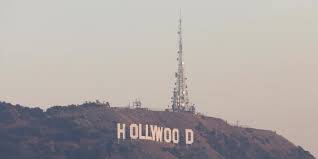California's Shifting Political Landscape: A New Era of Partisan Tensions
California, once a bastion of Republicanism, has undergone a significant transformation in recent decades. The state's political landscape has shifted dramatically, with Democrats now dominating the state's politics. This transformation has led to California becoming a focal point of partisan tensions, with Republicans increasingly viewing the state as a symbol of liberal excess.
California's shift towards Democratic dominance can be attributed to a combination of factors. The state's growing diversity, particularly among Hispanic and Asian populations, has led to an increase in Democratic voter registration. Additionally, the state's strong economy and high cost of living have driven many working-class families to rely on government services, further solidifying Democratic support ¹.
As California's politics have shifted leftward, Republicans have increasingly targeted the state as a symbol of liberal excess. The state's high taxes, stringent environmental regulations, and sanctuary city policies have become rallying cries for Republicans seeking to mobilize their base.
California's shift towards Democratic dominance has significant implications for national politics. The state's large delegation of Democratic lawmakers has given the party a significant advantage in Congress. Additionally, California's electoral votes have become crucial in presidential elections, with Democrats relying heavily on the state's votes to secure the presidency.
As California continues to be a focal point of partisan tensions, it remains to be seen how the state's politics will evolve in the coming years. One thing is certain, however: California's shifting political landscape has significant implications for the future of American politics.
To understand the current state of California's politics, it's essential to examine the state's history. California has long been a state of innovation and progress, with the Gold Rush of the mid-19th century drawing people from all over the world to the state. The state's early politics were dominated by Republicans, with the party's emphasis on individualism and limited government resonating with the state's independent-minded voters.
However, as the state's population grew and became more diverse, the state's politics began to shift. The 1960s and 1970s saw a significant increase in Democratic voter registration, particularly among Hispanic and African American populations. This shift was further solidified in the 1990s, when California's economy began to grow rapidly, driven by the tech industry.
Today, California is a deeply blue state, with Democrats dominating the state's politics. The state's governor, Gavin Newsom, is a Democrat, and the state's delegation to Congress is overwhelmingly Democratic. The state's politics are driven by a combination of factors, including the state's diverse population, its strong economy, and its high cost of living.
As California continues to be a focal point of partisan tensions, it remains to be seen how the state's politics will evolve in the coming years. One thing is certain, however: California's shifting political landscape has significant implications for the future of American politics.




No comments yet
Be the first to share your thoughts!